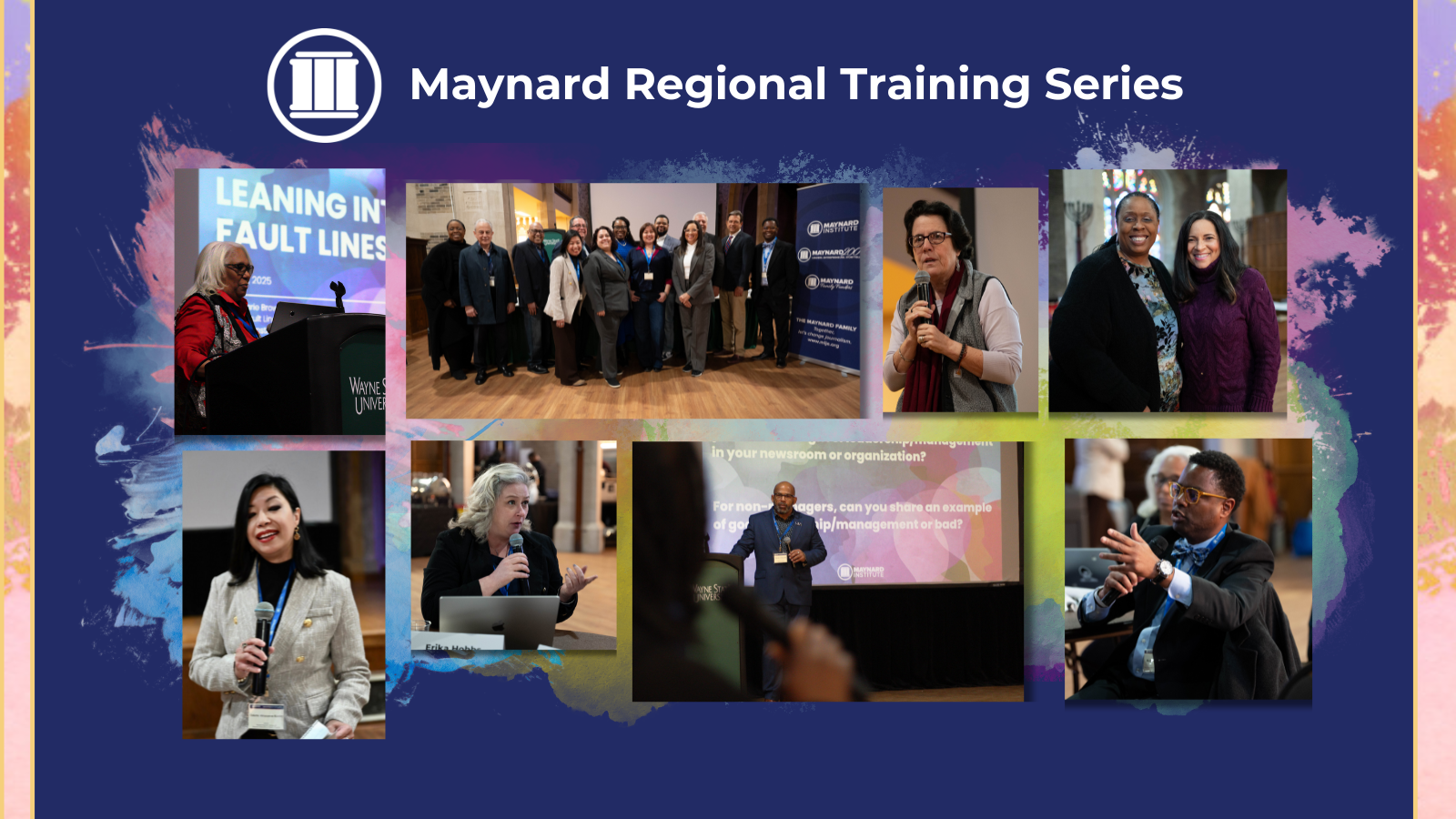
The Maynard Regional Training Series kicked off April 5 and 6 in Detroit in partnership with the Journalism Institute for Media Diversity on the campus of Wayne State University.
The inaugural weekend-long training, led by 21 veteran journalists and educators, brought together an impressive cohort of nearly 20 emerging news leaders representing varied backgrounds from across the United States.
They represented a wide spectrum of media affiliations, including the Kansas City Defender, EducationNC, The Detroit News, The Associated Press, Detroit Free Press, The Conversation US, Telegram Newspaper, PBS News Hour, independent journalists, media consultants and students from WSU’s Journalism Institute for Media Diversity.
“The training sessions, helmed by executive-level faculty, aimed to advance their proficiency, confidence and resilience as frontline editors and mid-level managers in U.S. newsrooms,” said Odette Alcazaren-Keeley, director of two Maynard Institute programs – Regional Training and Communities of Practice.
“Their diverse perspectives are driving courageous news coverage and discourse, informing and emboldening audiences. Their work is vital especially in this volatile time, with relentless assaults on our industry, First Amendment rights, and truth.”
Trainees engaged in customized workshops, panels and group office hours led by faculty with extensive newsroom experience.
The Manager’s Mindset
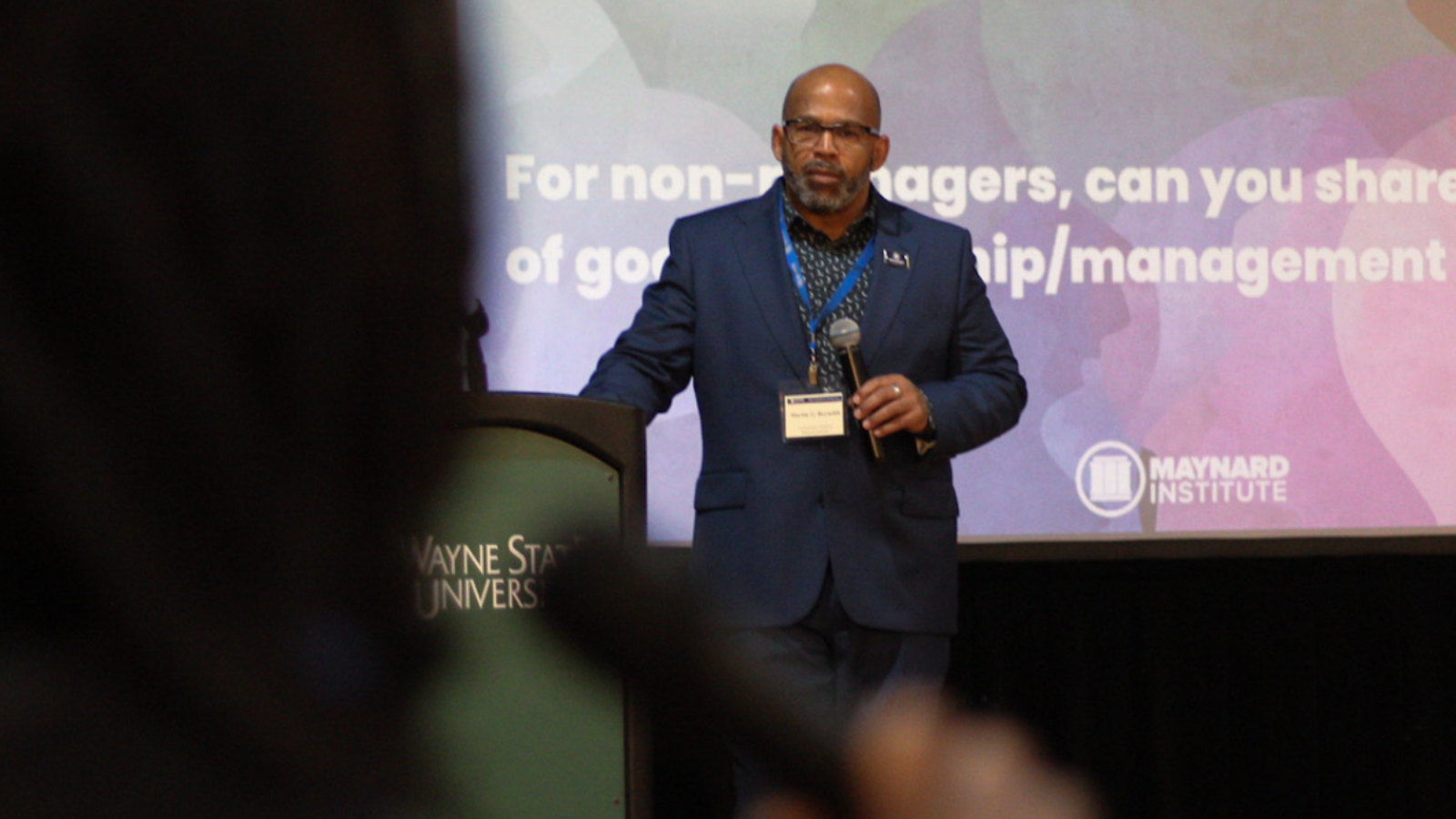
Photo by Akeel Hamed
Maynard Co-Executive Director Martin G. Reynolds set the tone for the weekend with a session on “The Manager’s Mindset” and what editors need to consider when stepping into leadership roles.
“I especially appreciated that Martin Reynolds emphasized the interpersonal aspects of management — that leadership is not just a title or a set of responsibilities, but a mindset you embody and uphold,” one participant wrote in a post-training survey. “His slideshow also offered thoughtful guidance on fostering belonging within a team, which really resonated with me.”
Leaning into your Fault Lines®
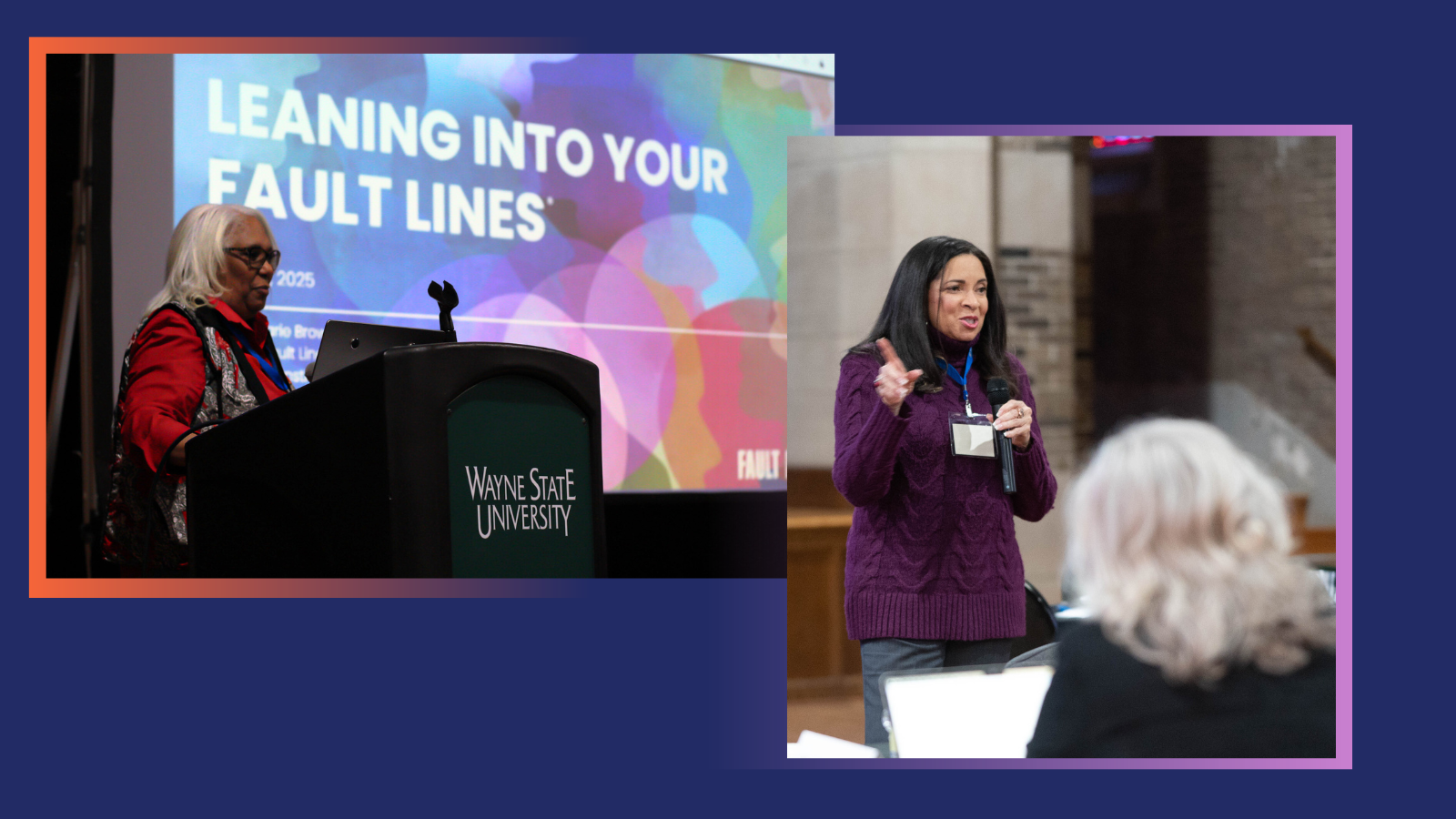
Photos by Akeel Hamed and Montez Miller
Maynard Senior Director of Strategic Initiatives Felecia D. Henderson facilitated a problem-solving discussion on management issues with Jean Marie Brown, associate professor of professional practice at TCU Bob Schieffer College of Communications.
Professor Brown led a session on “Leaning Into Your Fault Lines®,” built around the Maynard Institute’s signature Fault Lines® framework, which helps editors understand how their biases – unconscious and conscious – inform the ways they manage news coverage.
“This was my favorite presentation,” a participant wrote of the session. “I really appreciated that the approach to this topic wasn’t to villainize fault lines or personal identity in journalism, but rather to recognize that we all have them, and that they can be an asset in our coverage.”
Reporting on Race, Gender, and Culture
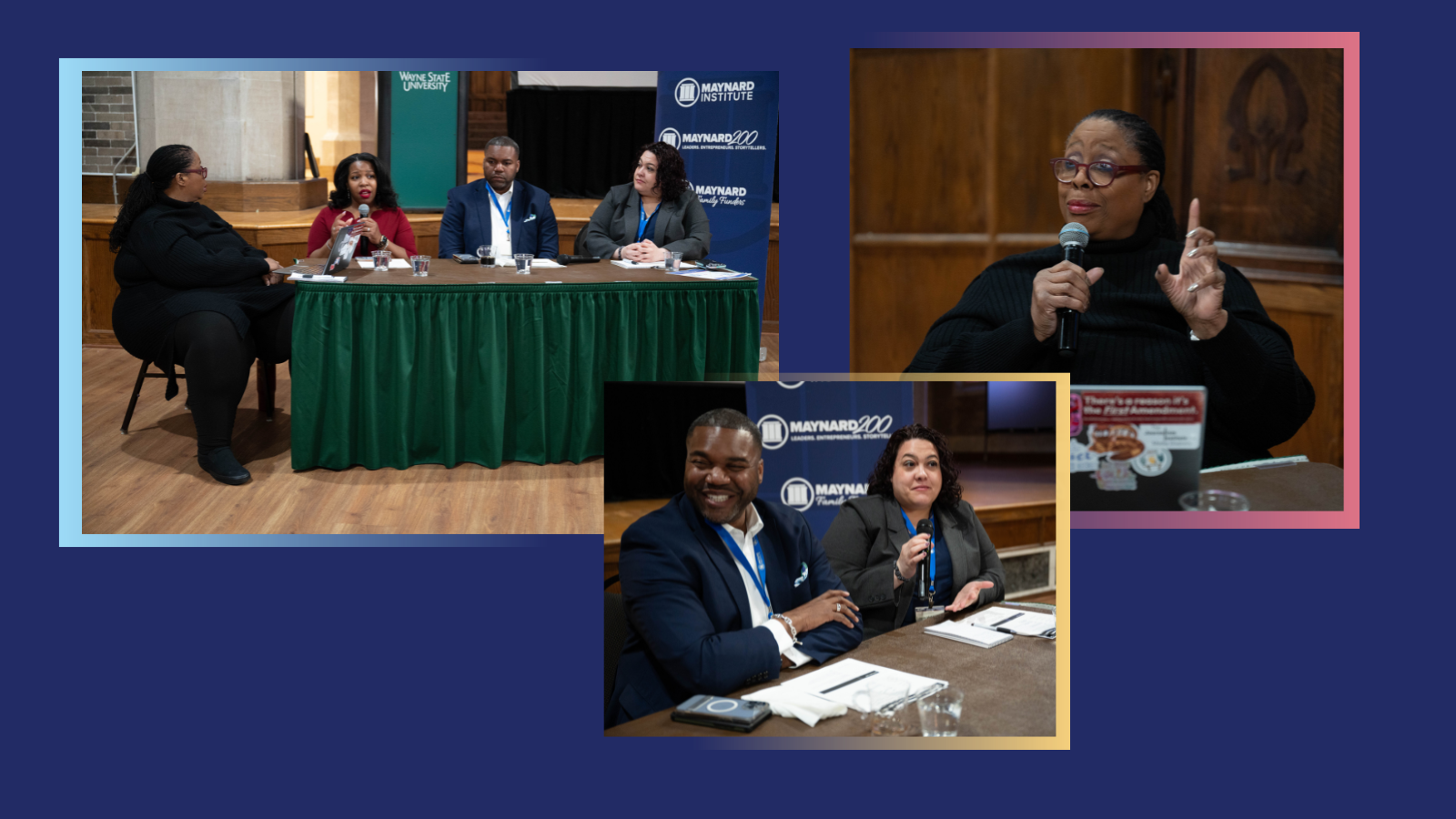
Photos by Montez Miller
Alicia Nails, director of Wayne State’s Journalism Institute for Media Diversity, moderated a discussion on race, gender and culture reporting with panelists Laurén Abdel Razzaq of Bridge Detroit, Kat Stafford, global race and justice editor at Reuters, and anchor/reporter Demond Fernandez of WDIV-TV in Detroit.
“I thought this session was great,” an attendee wrote in the survey comments. “The panelists reinforced the aspect of belonging, which Martin had introduced the day before. I have tried to be intentional about looking out for and checking in with new people in the newsroom, particularly those who may be the only ones they see who look like themselves. I realize I need to do that more frequently and in a more sustained manner.”
Ethical Editorial Decision Making
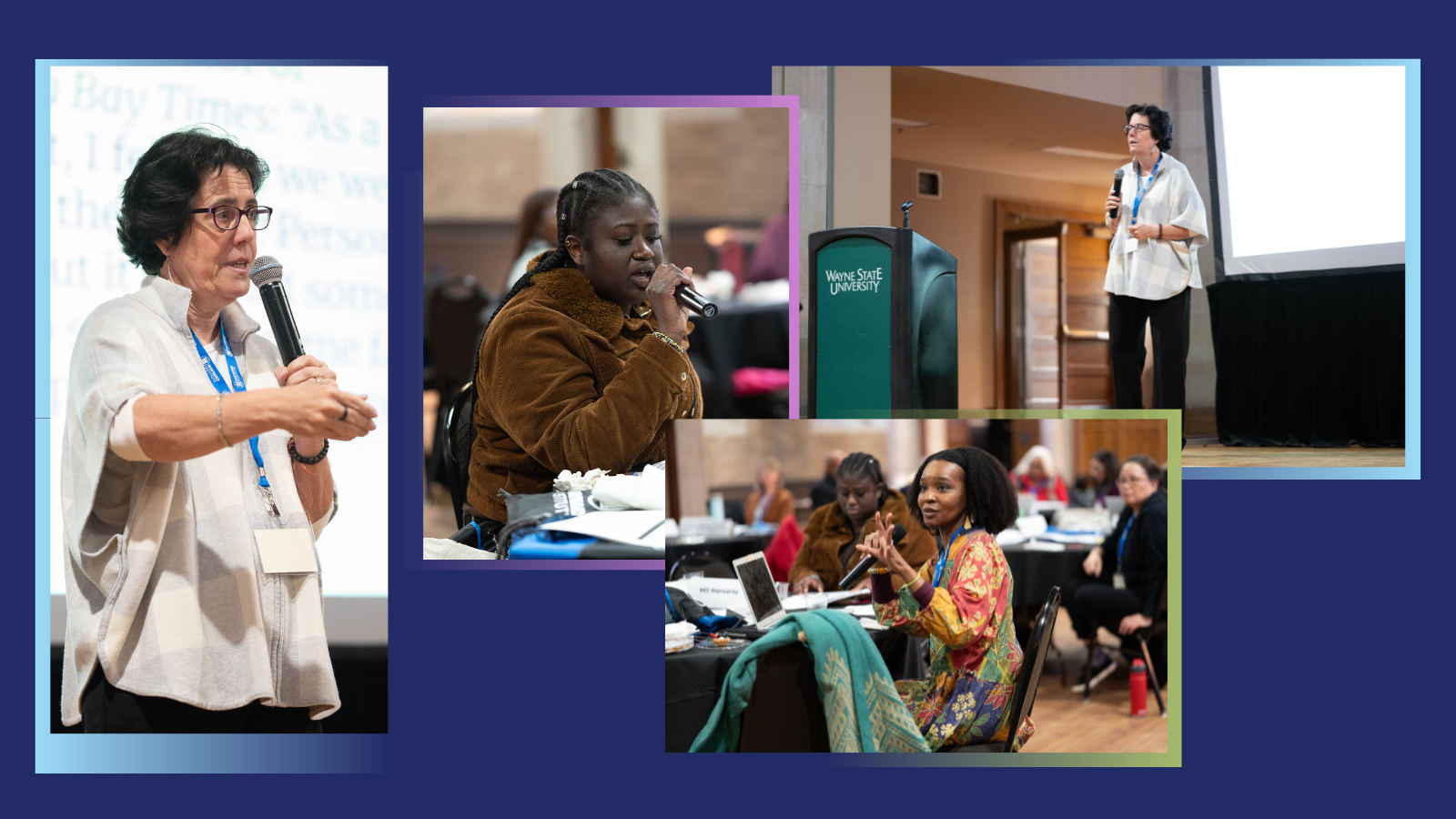
Photos by Montez Miller
Coach and consultant Maria Carrillo led two sessions: Ethical Editorial Decision Making and Coaching for Story and Building Trust.
“I hope to be as thoughtful to the people I mentor/supervise,” an attendee wrote of Carrillo. “She really drove home that managers are there to serve their people.”
Strategizing Innovation, Engagement and Sustainability for Teams and News Organizations
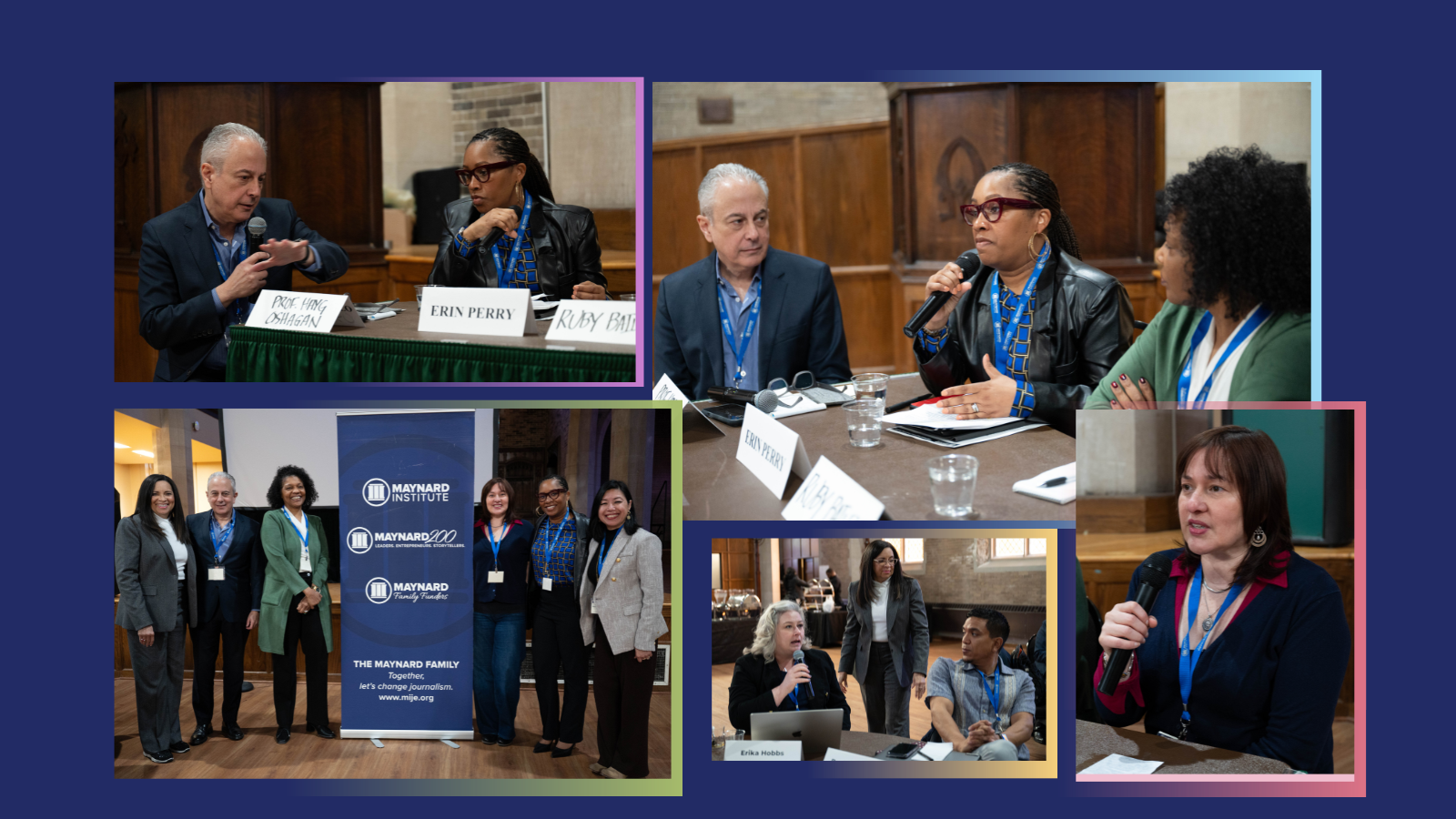
Photos by Montez Miller
During the panel discussion “Strategizing Innovation, Engagement and Sustainability for Teams and News Organizations,” Erin Perry, editor of Outlier Media, Ruby Bailey, editor-in-chief of the Illinois Answers Project, and Martina Guzman, director of the Race and Justice Reporting Initiative at the Damon J. Keith Law Center, discussed the changing face of journalism and local news audiences with moderator Hayg Oshagan, associate professor of communication at Wayne State University and founder of New Michigan Media.
“I was blown away by some of the examples of engagement that were given and the lengths that some of the newsrooms are going to support their communities,” a survey respondent wrote. “It opened my mind to how innovative a news organization must be to truly serve and inform its audience.”
Closing Roundtable Discussion
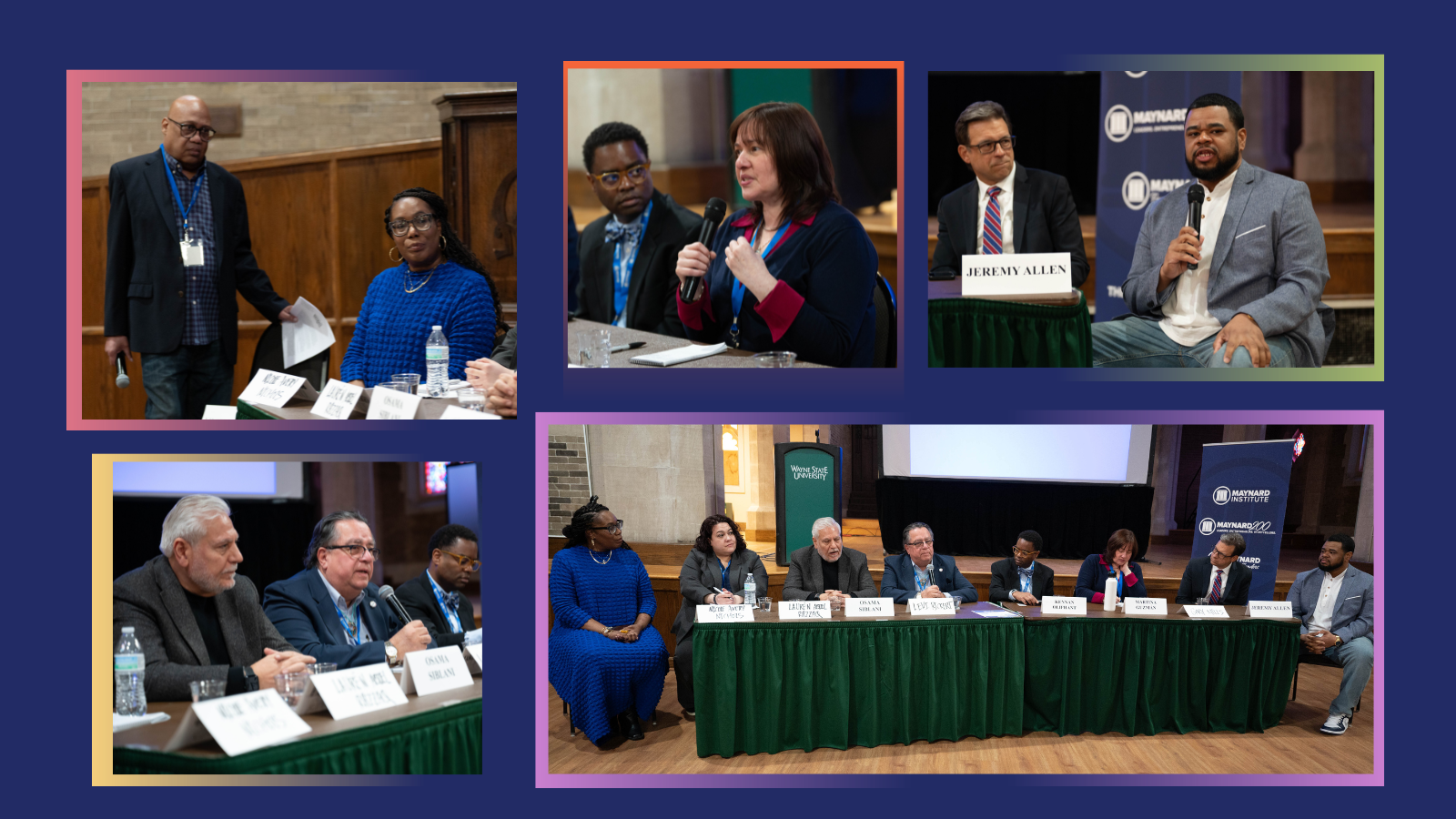
Photos by Montez Miller
In the closing roundtable discussion moderated by Vincent McCraw, regional manager of Report for America and president of Detroit NABJ, local and statewide leaders of legacy print and broadcast, nonprofit, and ethnic media discussed the challenges of covering news in the midst of distrust of local and national media and government.
“This was amazing!” one participant responded. “It was just really great to see some of the regional news leaders in Detroit all in one place and they had very insightful comments to share about the future of news, especially for reporters of color.”
Panelists included Laurén Abdel Razzaq, executive director of Bridge Detroit, Jeremy Allen, executive editor of the Michigan Chronicle, Nicole Avery Nichols, vice president and editor of the Detroit Free Press, Martina Guzman of the Damon J. Keith Law Center and creator of Spanish-language app VERDAD, Gary Miles, editor and publisher of The Detroit News, Kennan Oliphant, VP news and station manager for CBS Detroit, Levi Rickert, editor, publisher, and founder of Tribal Business News ad Native News Online, and Osama Siblani, publisher of Arab American News.
“The training concluded with a stirring roundtable of leaders from local, state, mainstream, nonprofit, and ethnic media—each offering a unique lens shaped by their communities and coverage. Together, they explored the evolving landscape of news coverage, showcasing the vibrancy of the region’s media ecosystem,” Alcazaren-Keeley said.
Participants enthusiastically told organizers they enjoyed learning from veteran journalists and connecting with fellow editors.
“This training was overall an amazing experience!” one participant wrote in the post-training survey. “I enjoyed connecting with the Maynard team as well as the other journalists in attendance. As a first-time editor and news leader, this was just what I needed to move forward confidently in my new position!”
The Maynard Institute will provide more training for entry-level and mid-career editors and managers this year. The next Regional Training weekend will be hosted July 17-18 by the UNC Hussman School of Journalism and Media at Chapel Hill.
The Maynard Regional Training Series is made possible thanks to the support of our generous funders The Ford Foundation and The John S. and James L. Knight Foundation and donations from individuals who support our mission of diversifying journalism.
Questions?
For more information about the Maynard Regional Training Series, please reach out to: Maynard Regional Training Series Director, Odette Alcazaren-Keeley at okeeley@mije.org.